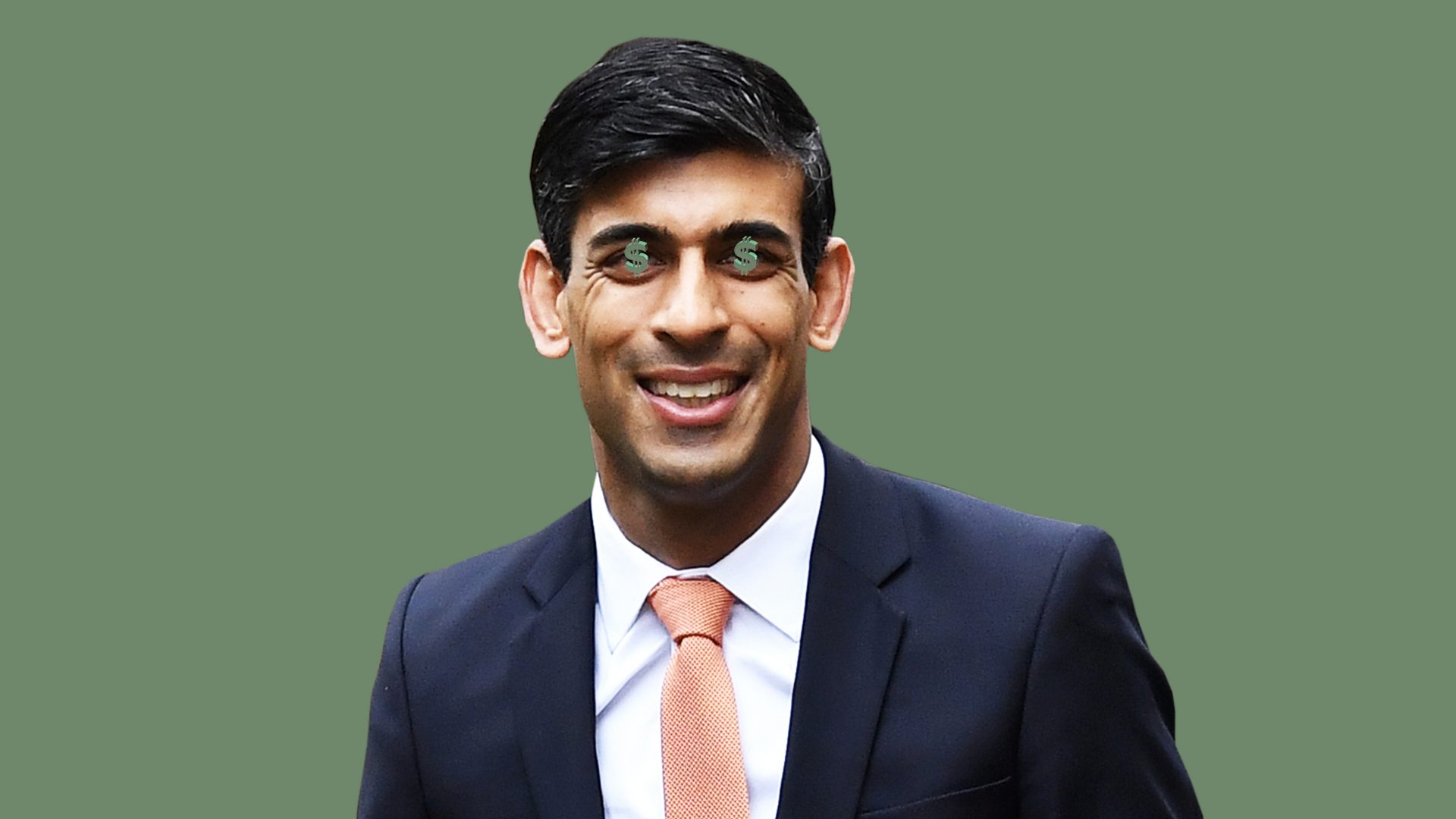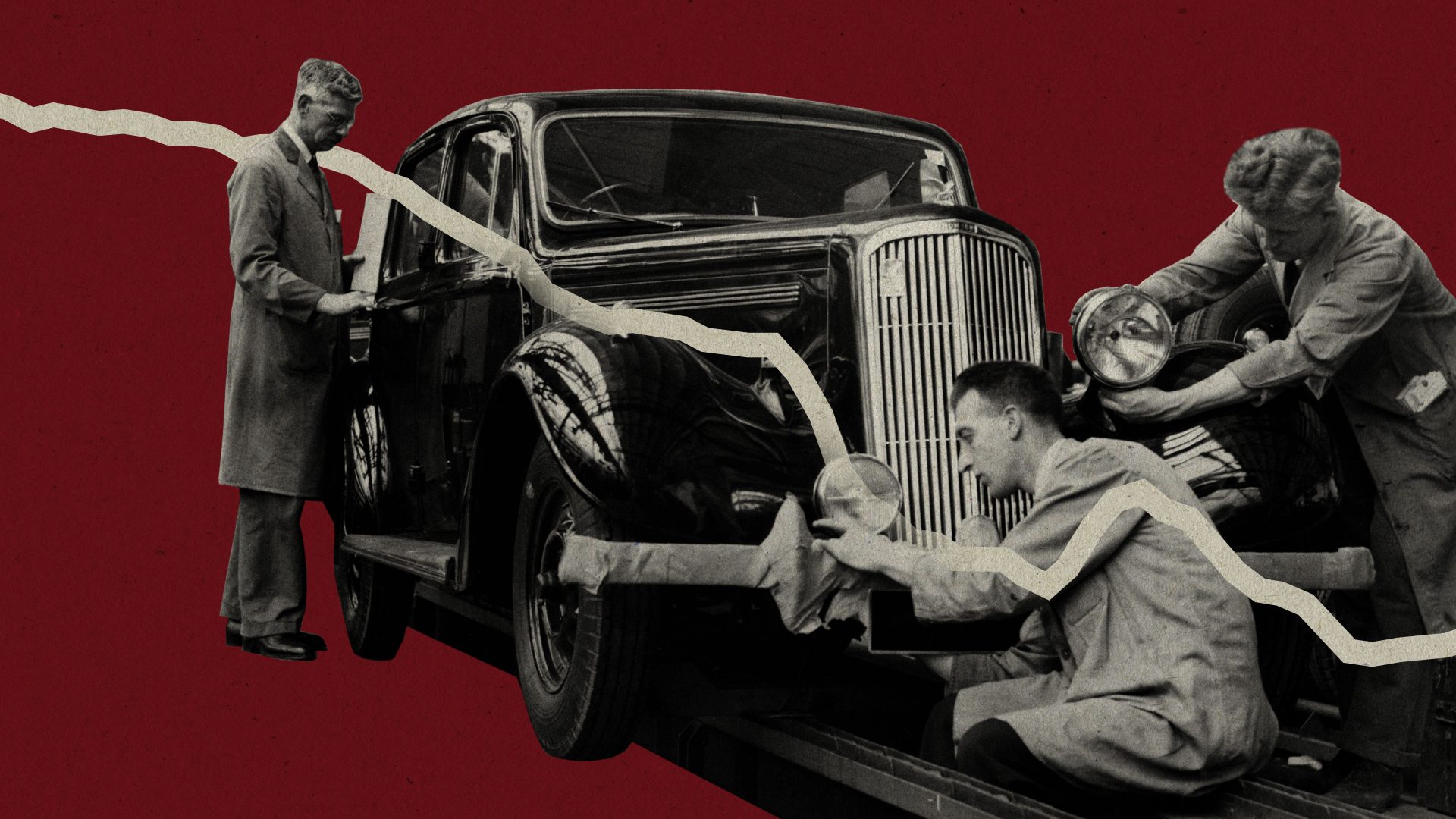Our new prime minister is richer than the King. His family wealth puts him among the richest 250 people in the country. But does it matter?
Well, soon Rishi Sunak will deploy the same financial logic that made him rich to justify making millions of people poorer. He is preparing – if the Treasury briefings are correct – to slap £50bn worth of tax rises and spending cuts on a public sector already so fragile that 90% of schools face bankruptcy, and where doctors are warning of “catastrophic failure” in the NHS.
Sunak, as chancellor, did a great job boosting his own reputation. He had his signature turned into a government logo and staged photo opportunities that would have embarrassed an Instagram star. It was a masterpiece of PR – and of course, we paid for it.
And that is the art of being super-rich. To exploit all systems – banking, regulation, politics, and even the charitable status of private schools – in such a way that, in the process of accumulating wealth, you never actually pay for stuff and always force others to bear the risks.
Few people outside the financial elite can imagine what being fabulously wealthy feels like. For Sunak, it means he can pay more for each of his children’s private school fees than the average Brit earns in a year. But these multiples show nothing of the true reality.
The Sunaks together are said to be worth £730m. If they are getting even a 1% annual return on that, they’re earning over £7m a year, or £600,000 a month before tax. But super-rich people don’t live in the world of 1% returns; and nor do they live in the world of paying tax at the rate the rest of us do. The financial engineering associated with almost everything the Sunaks have touched – companies based in tax havens like Mauritius and the Cayman Islands – is designed to deliver spectacular unearned income.
The chancellor holds his money in a blind trust/blind management agreement – which means he can refuse to publish how much he owns or what it is invested in. The same black box surrounds what Sunak actually did while working at Goldman Sachs, the hedge funds Theleme Partners and TCIF, and his family firm Catamaran Ventures UK until 2015.
So let’s understand what investment banks like Goldman Sachs do. They rip the heart out of communities, states, other businesses and the natural world. While they manage the money of the rich, half of all profits go to the bankers themselves. And by 2001, when young Rishi joined them fresh from Oxford, they had a sure-fire formula for making profits: pumping the housing market with loans that were certain to go bad, secure in the knowledge that the bank was too big to fail, and would be bailed out by the taxpayer and the Fed should things go wrong.
By the time they did go wrong, in 2007, however, Rishi was gone – to Stanford University to get an MBA degree. He emerged into the world of hedge funds – institutions even more opaque and unregulated than investment banks. The basic function of hedge funds is to make aggressive bets in volatile conditions – like putting your money on a horse at 10/1 odds in a rainstorm. So long as central banks are pumping money into the system, as they were obliged to after the 2008 crash, hedge funds are a machine redistributing wealth from risk-averse small investors to rich people.
Throughout his career, offshore tax havens have loomed large in Sunak’s world. Both TCI and Theleme Partners hedge funds were registered in the Cayman Islands; Goldman is a major user of them.
Sunak is, then, a living personification of modern finance capital. He has made money out of manipulating money; profited from the bankruptcy of others; ruthlessly exploited the leniency of regulators and the generosity of central banks.
If, as the philosopher Hegel said, “being determines consciousness” – then Sunak’s social function as a one-man financial exploitation machine has determined his consciousness as an advocate of the small state. Even when the Treasury was borrowing in excess of £300bn a year at the height of the pandemic, doling out billions to (who knew?) fraudulent ventures, Sunak was standing up in parliament to advocate low taxation and the small state.
Now he has his chance to eviscerate one more victim on behalf of finance capital: post-Brexit Britain, with its semi-bankrupt rail franchises, its crumbling estates, its hospital corridors turned into makeshift wards, its food banks overwhelmed by starving mums.
He will do it all with grace and affected charm. Because that’s how they operate, the Goldman kids: behind a slick smile, an urbane manner and a perfect suit. How can we possibly be angry with Sunak when he is simply following the logic of fiscal discipline, and when he cares so much about the poor?
There is poetic justice in the fact that the great, failed Tory experiment in populism ended up making the richest politician in Britain prime minister. Enriching the rich was, ultimately, what Brexit was all about. Sunak and the Brexiteers once promised there would be £350m a week for the NHS. That’s £18bn a year. On November 17, he will need to find at least double that amount in tax rises and spending cuts.




